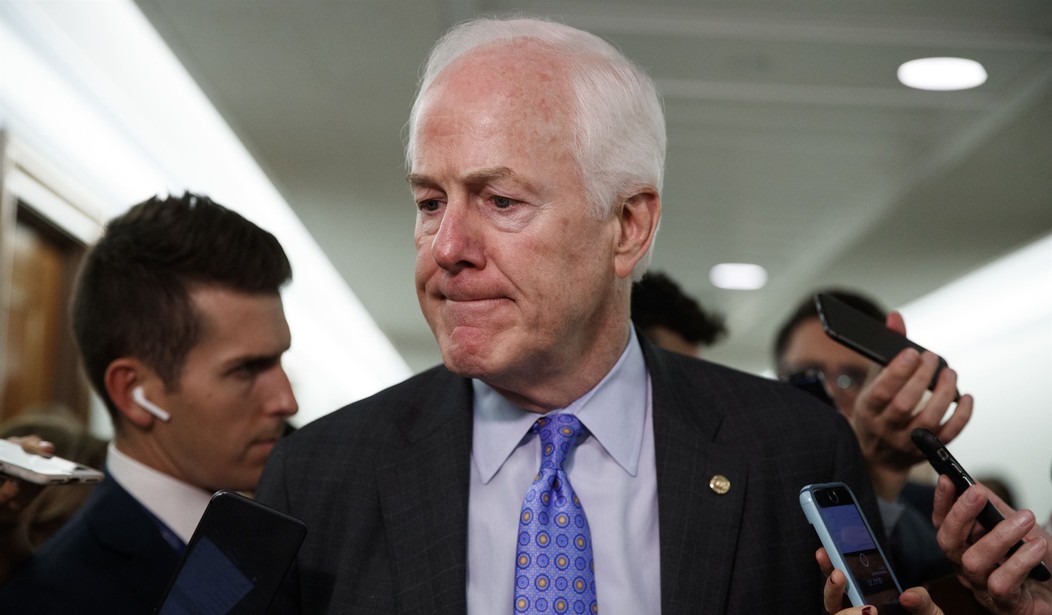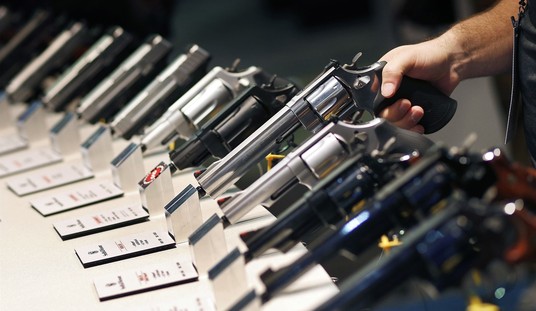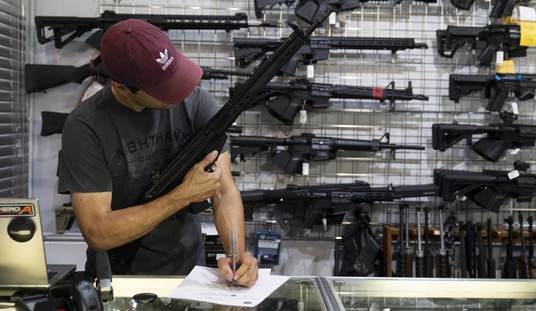U.S. Senator John Cornyn (R-TX) introduced on Wednesday his legislative response to this summer’s shootings in El Paso and Dayton; a sweeping and broad bill called the RESPONSE Act that would give new investigative tools to law enforcement, increase funding for state-run mental health systems, as well as giving incentives to school districts around the country to keep tabs on the online activity of students considered to be a risk to student safety. The bill does not contain any sort of outright gun control provisions like universal background checks or “red flag” laws, so of course gun control supporters already hate it.
After taking over $210,000 from the gun lobby, refusing to denounce gun violence and white supremacy in the direct aftermath of the El Paso shooting, and taking money from the NRA directly between the El Paso and Midland-Odessa tragedies, it’s no surprise that John Cornyn would introduce a bill that doesn’t include expanding background checks or reducing the amount of weapons of war on our streets,” Texas Democratic Party spokesman Abhi Rahman said. “Texans deserve real solutions to solve our gun violence epidemic—not half measures that are meant purely to score political points.”
Methinks the Democrat spokesman protests too much. The fact of the matter is that his proposed solutions of expanding background checks and banning guns aren’t real solutions at all. They’re ineffective and unconstitutional, and wouldn’t prevent mass shootings at all. Cornyn’s proposal is much more workable, though I think there are still some constitutional concerns surrounding the monitoring of students’ social media activity.
“Schools remain a soft target for some of these cowards” as in Parkland, in Florida, and Santa Fe High School, Cornyn said, adding that this approach could also prevent teen suicide, because as data have long shown, “The single most common cause of death by firearm is suicide.”
I completely understand where Senator Cornyn is coming from. The teen suicide rate is climbing, though firearms are not used by a majority of teens who commit suicide. If you can identify those who are at risk of committing suicide before they act out, you can absolutely save lives.
On the other hand, as Lois Beckett at The Guardian reported this week, the school surveillance state is kinda creepy as it stands. Do we really want to expand it?
Bark and similar tech companies are now monitoring the emails and documents of millions of American students, across thousands of school districts, looking for signs of suicidal thoughts, bullying or plans for a school shooting.
The new school surveillance technology doesn’t turn off when the school day is over: anything students type in official school email accounts, chats or documents is monitored 24 hours a day, whether students are in their classrooms or their bedrooms.
Tech companies are also working with schools to monitor students’ web searches and internet usage, and, in some cases, to track what they are writing on public social media accounts.
Parents and students are still largely unaware of the scope and intensity of school surveillance, privacy experts say, even as the market for these technologies has grown rapidly, fueled by fears of school shootings, particularly in the wake of the Parkland shooting in February 2018, which left 17 people dead.
It’s one thing for the school district to monitor communications that take place on the district’s network. It’s something else entirely to go combing through their Instagram or Snapchat accounts to keep an eye on them.
“Schools feel massive pressure to demonstrate that they’re doing something to keep kids safe. This is something they can spend money on, roll out and tell parents, this is what we’re doing,” said Chad Marlow, a privacy expert at the American Civil Liberties Union.
Unlike gun control, Marlow said, “Surveillance is politically palatable, and so they’re pursuing surveillance as a way you can demonstrate action, even though there’s no evidence that it will positively impact the problem.”
Here’s a novel thought: what if the First, Second, and Fourth Amendments are all equally important? This shouldn’t be a matter of picking between gun control and the surveillance state. Both are bad, and frankly both feed on each other.
Some proponents of school monitoring say the technology is part of educating today’s students in how to be good “digital citizens”, and that monitoring in school helps train students for constant surveillance after they graduate.
“Take an adult in the workforce. You can’t type anything you want in your work email: it’s being looked at,” Bill McCullough, a Gaggle spokesperson, said. “We’re preparing kids to become successful adults.”
Is accepting constant surveillance really necessary to become a successful adult these days? As Beckett notes, these school districts and the private companies they’re working with aren’t just monitoring social media for suicidal or homicidal threatens. Even a bad word in an email might trigger a response from an authority figure.
School officials say that their primary motivation for using surveillance technology is the chance to save a student’s life. But schools are monitoring students’ digital documents in real time for a wide range of content they see as problematic, from swear words to nude images and pornography to cyberbullying to evidence of drug and alcohol use.
In Weld county, Colorado, a student emailed a teacher that she heard two boys were going to smoke weed in a bathroom, Hernandez, the student services and safety director, said. Gaggle immediately alerted school officials: “Within four minutes of her sending this email, the troops had deployed,” she said.
Gaggle also automatically sends students a scolding email any time they use a profanity.
I’m glad that Senator Cornyn hasn’t included any feel-good, do-nothing gun control measures in his proposal, but the genuine concerns about the growing and blanket surveillance of students need to be addressed. Just like the “red flag” laws beloved by gun control advocates, these monitoring programs allow for an erosion of civil liberties under the guise of public safety. Though they may be well-intentioned, they can still do a great deal of damage to our individual freedoms.









Join the conversation as a VIP Member